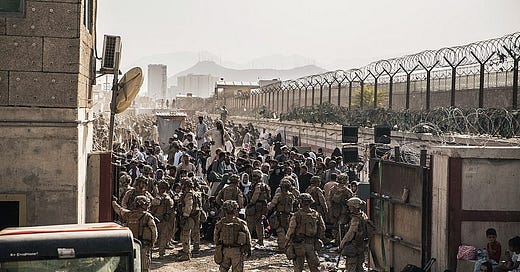An unforgettable emblem
The Abbey Gate bombing as symbol of a disastrous U.S. exit from Afghanistan
A year ago I was clocking 18-hour days at my desk, tracking Afghans I knew and some I did not during the chaotic U.S. withdrawal and takeover by the Taliban. The rest of the time I couldn’t sleep, thinking in particular about 22 leaders of the Christian house church networks—leadership I’d connected with years ago in Afghanistan—who were sleeping on the…
Keep reading with a 7-day free trial
Subscribe to GlobeTrot to keep reading this post and get 7 days of free access to the full post archives.


